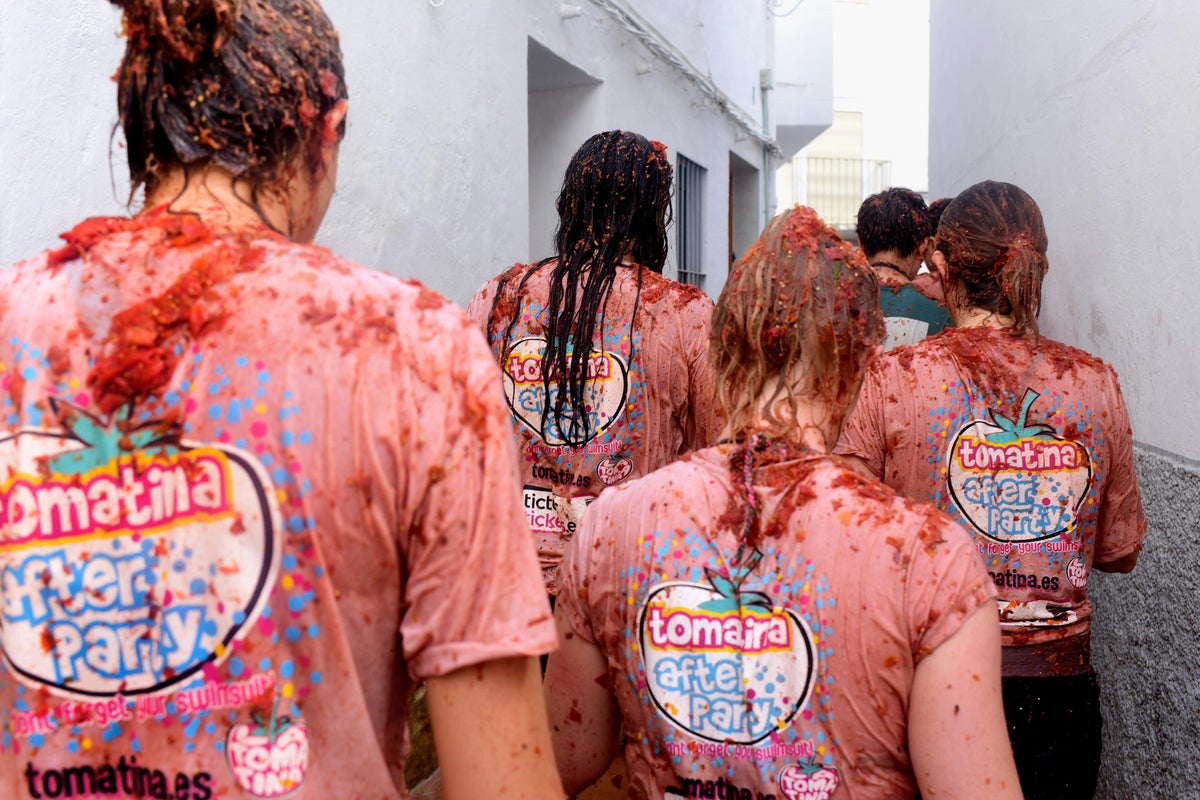Your support helps us to tell the story
From reproductive rights to climate change to Big Tech, The Independent is on the ground when the story is developing. Whether it’s investigating the financials of Elon Musk’s pro-Trump PAC or producing our latest documentary, ‘The A Word’, which shines a light on the American women fighting for reproductive rights, we know how important it is to parse out the facts from the messaging.
At such a critical moment in US history, we need reporters on the ground. Your donation allows us to keep sending journalists to speak to both sides of the story.
The Independent is trusted by Americans across the entire political spectrum. And unlike many other quality news outlets, we choose not to lock Americans out of our reporting and analysis with paywalls. We believe quality journalism should be available to everyone, paid for by those who can afford it.
Your support makes all the difference.Read more
Thousands are set to descend on the Spanish town of Buñol this Wednesday (August 27), ready to be drenched in 120 tons of overripe tomatoes as the famous “Tomatina” festival celebrates its 80th anniversary. The hour-long event transforms the eastern town into a vibrant red spectacle, drawing up to 22,000 participants.
Many attendees travel from across the globe, paying 15 euros for entry, converging on a town where buildings are draped in tarpaulins to protect them from the impending deluge. “When it’s going on, it’s just a blur of tomatoes,” recalled Adrian Columb of Ireland, who attended in 1999. “It was a blast.”
Held annually on the last Wednesday of August, the event traces its origins back to a spontaneous food fight among local children in 1945. What began as a yearly tradition faced a brief ban in the 1950s under Spanish dictator Francisco Franco, a decision met with local protest. However, televised media attention in the 1980s propelled “Tomatina” into a national phenomenon, eventually attracting an international following. Spain officially recognised the festival as an international tourism attraction in 2002, with the event only being suspended twice since, in 2020 and 2021, due to the coronavirus pandemic.
The vast quantities of tomatoes used are not diverted from food crops; instead, they are specifically cultivated for the festival. Buñol Deputy Mayor Sergio Galarza explained: “If ‘Tomatina’ didn’t exist, these tomatoes wouldn’t be cultivated because there wouldn’t be a need for them.” This year’s supply originates from Don Benito, a town over five hours away.
Despite the apparent chaos, the festival operates without teams, points, or referees, but with a crucial safety guideline: participants are encouraged to squash tomatoes before hurling them to prevent injuries, and to refrain from throwing anything else. Many attendees opt for swimming goggles and earplugs for protection. Mr Columb recounted how a friend finished the battle with two black eyes, adding: “But I know he’s kind of tall, so maybe he was a target.” The physical toll is significant, as Mr Galarza, who grew up attending the festival before becoming its chief councillor, noted: “You finish exhausted. Your arms are worn out, everything is worn out from moving and launching it all.”
What to know about Spain’s ‘Tomatina’ festival, the tomato street fight turning 80Show all 4
Once the hour-long battle concludes, signalled by a cannon shot, participants head to communal showers to wash off the thick, ankle-deep tomato puree. While clothes are often irreversibly stained, the citric acid from the tomatoes surprisingly acts as an effective cleaning agent on the pavement, often leaving the streets cleaner than before within hours.
Though similar tomato-flinging events have emerged globally, from Florida and London to Amsterdam, Colombia, and India, for Mr Galarza, “Tomatina” remains intrinsically linked with its original home. “The truth is that it’s exciting because year after year, you can see how ‘Tomatina’ grows and evolves,” he said, “and you can enjoy a festival that is super wholesome.”
